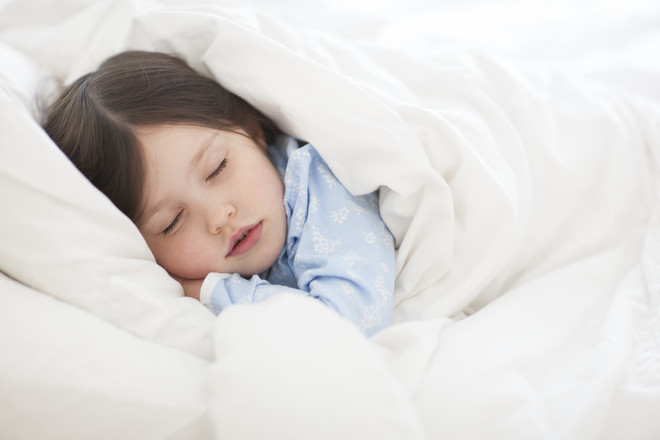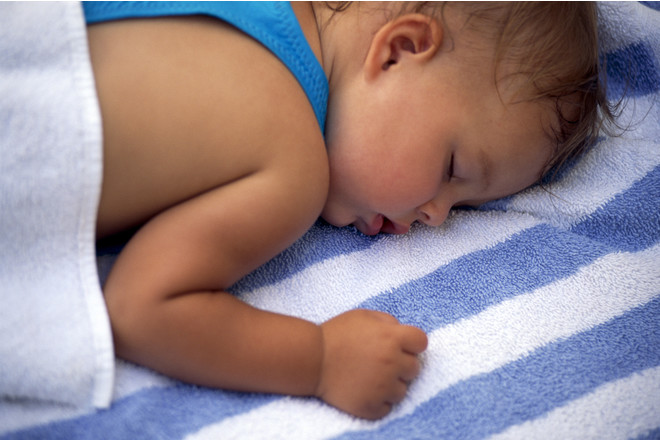Why does a child sweat at night
Excessive sweating, calledhyperhidrosis, is considered normal for children under 5 years old. The reason for this is the underdevelopment of sweat glands and the imperfection of the autonomic nervous system. Most often, the child's body reacts to high ambient temperatures with increased sweating. The child does not sweat at night if in the roomcool, fresh and quite humidPhoto: Getty The room where the child sleeps should be 18-20 degrees. The optimal level of air humidity in the bedroom is 50-60%. Do not wrap up children! In summer, they can sleep in a T-shirt and shorts, in winter - in cotton pajamas. Sometimes increased sweating is provoked by the bed: a synthetic pillow, a cotton or down blanket. The cause of night hyperhidrosis in a child can be:
The child does not sweat at night if in the roomcool, fresh and quite humidPhoto: Getty The room where the child sleeps should be 18-20 degrees. The optimal level of air humidity in the bedroom is 50-60%. Do not wrap up children! In summer, they can sleep in a T-shirt and shorts, in winter - in cotton pajamas. Sometimes increased sweating is provoked by the bed: a synthetic pillow, a cotton or down blanket. The cause of night hyperhidrosis in a child can be:
- fever or recently transferred ARVI;
- lack of sleep, fatigue;
- emotional overexcitement;
- failure of the nervous system;
- hereditary diseases - cystic fibrosis or phenylketonuria.
One of the dangerous causes of sweating isrickets. The first signs of the disease usually appear at 1-2 months. In addition to wet spots on the pillow, rickets is indicated by nervous system disorders: irritability, tearfulness, sleep disturbances. Due to constant head turning, a bald spot may appear on the back of the head. Children with rickets have late teething, and the fontanelle closes slowly.
What to do with night hyperhidrosis
First of all, rule out all obvious causes.increased sweating. Install a humidifier in the bedroom, ventilate the room more often. Make sure that both the baby's clothes and bedding are made of natural, environmentally friendly and breathable materials. A child under one year often sweats at night due tounderdevelopment of sweat glands Photo: Getty Before going to bed, bathe your baby in warm water with the addition of a herbal decoction - succession or chamomile. In the morning, be sure to wash the sweat off the baby's body, change him into clean clothes. Important! If sweating is a consequence of the individual characteristics of the autonomic nervous system, it will most likely pass in adolescence. Be sure to consult a pediatrician. If there are signs of rickets, the doctor will prescribe a shock dose of vitamin D and a course of ultraviolet irradiation. If sweat has a sharp and unpleasant smell, becomes thick and sticky, then profuse and liquid, the child should be shown to a neurologist. Genetic analysis allows you to identify a hereditary disease accompanied by hyperhidrosis. So, sweating at night is caused by both external and internal factors. In some cases, hyperhidrosis can be a sign of rickets, a nervous disease. Read more:
A child under one year often sweats at night due tounderdevelopment of sweat glands Photo: Getty Before going to bed, bathe your baby in warm water with the addition of a herbal decoction - succession or chamomile. In the morning, be sure to wash the sweat off the baby's body, change him into clean clothes. Important! If sweating is a consequence of the individual characteristics of the autonomic nervous system, it will most likely pass in adolescence. Be sure to consult a pediatrician. If there are signs of rickets, the doctor will prescribe a shock dose of vitamin D and a course of ultraviolet irradiation. If sweat has a sharp and unpleasant smell, becomes thick and sticky, then profuse and liquid, the child should be shown to a neurologist. Genetic analysis allows you to identify a hereditary disease accompanied by hyperhidrosis. So, sweating at night is caused by both external and internal factors. In some cases, hyperhidrosis can be a sign of rickets, a nervous disease. Read more:









